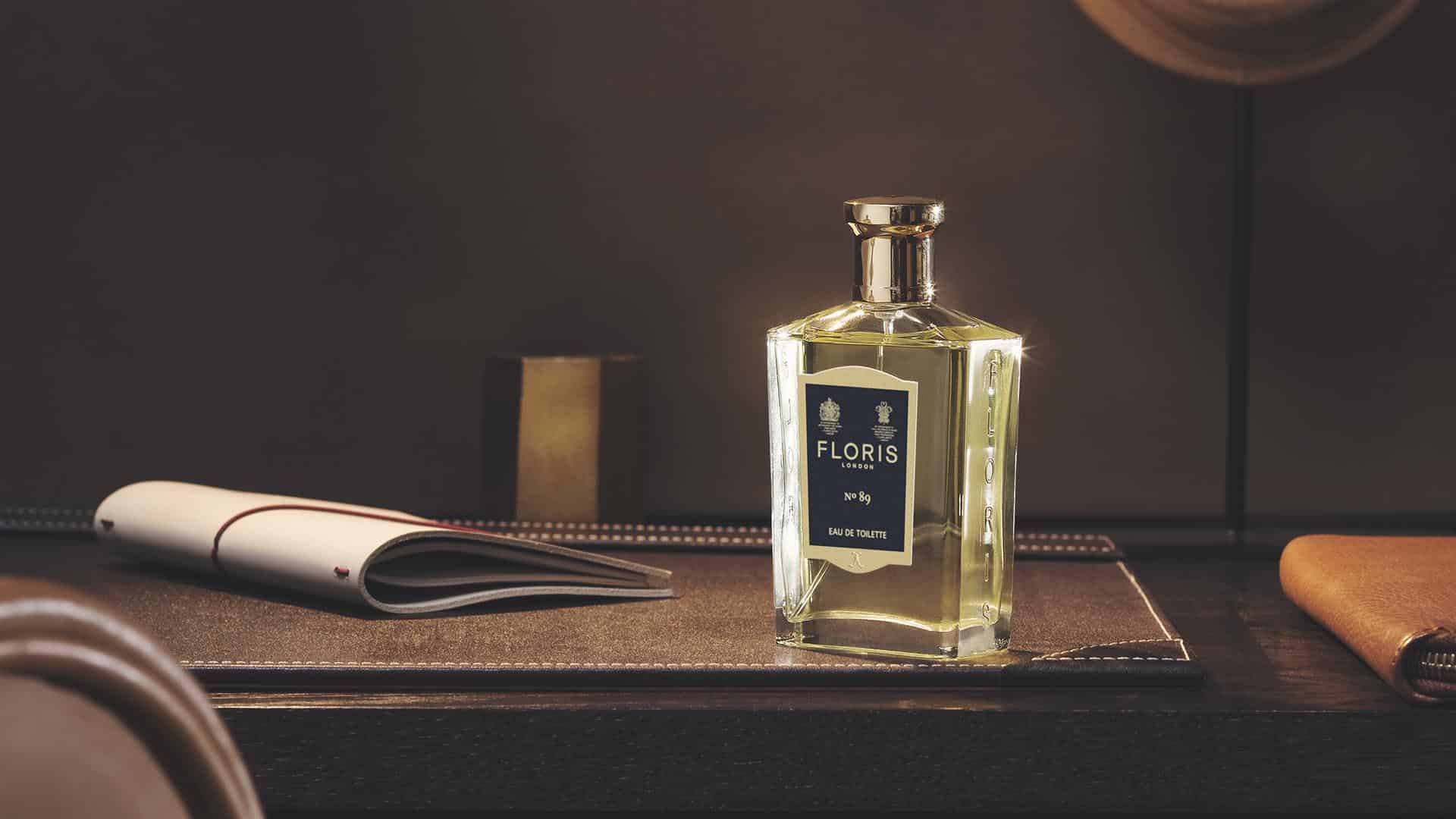The oldest family-owned perfumer in the world, Floris, has come a long way since founder Juan Famenias Floris set sail from Spain for England nearly 300 years ago.
Floris fragrances’ clientele ranges from Oscar Wilde and Winston Churchill to Marilyn Monroe and David Bowie. Even Villanelle from TV show Killing Eve visited the perfumery at 89 Jermyn Street, but most notably Floris has a long royal history, spanning from Queen Victoria to modern monarchs.
Today, Floris is run by the ninth generation of the family. We sat down with its Perfumery Director, Mr. Edward Bodenham, the direct descendant of founder Juan Floris, to discuss the brand’s enduring legacy and the evolution of scents, as well as perfume’s potential as an alternative investment.
Could you share with us a brief history of Floris?
Our company was founded in 1730 by my ancestor, Juan Famenias Floris who extensively studied perfumery before meeting his wife Elizabeth in the St James’s area of London. Together they bought their house at 89 Jermyn Street which soon became their shop and perfumery, and gained a reputation for its selection of fine fragrances.
Before long, word spread, the British Royal Family began wearing our fragrances and we were honored to receive our first Royal Warrant in 1800 from the His Royal Highness The Prince of Wales and later from His Majesty King George IV in 1820. Since then we have received 17 Royal Warrants and are today the only Appointed Perfumer to Her Majesty The Queen and also hold a Warrant to His Royal Highness The Prince of Wales.
The original shop at 89 Jermyn Street is still very much the heart and home of our family company and it is where we still work from and create all of our fragrances, including a Bespoke Perfumery Service. Each generation of my family has taught their craft to the next generation from our treasured original formula books, and we have a collection of fragrances dating back to the earliest days but are always adding to our collection with newly inspired compositions.
The perfume house created a bespoke scent for Prince Harry and Meghan Markle’s wedding and The Queen’s Platinum Jubilee. What keeps your brand so successful?
Being an independent family perfumery, we are extremely passionate about what we do in the same way that my ancestors have always been throughout the generations, as perfumery is part of our life. We always work with the finest perfume absolutes and essences in our fragrances and take great care in making sure that the quality of our products and our service is of the very best standard possible.
We have been making perfumes for nearly 300 years now and many of our customers have grown up with our fragrances in the same way that I and my family have. There is something comforting and nostalgic about being surrounded by the fragrances that we are familiar with and that have good associations with, so we have inherited many of our customers through the generations, but we are now appealing to a whole generation of new customers who take time to research fragrances and are discovering our collection for the first time, here in Britain, and increasingly in new selected outlets across the world.
What are the current trends in the industry?
In terms of fragrance trends, they come and go, and we tend not to follow them but are led instead by our emotions and inspirations which determine the creative projects that we work on. We do see trend patterns and I have noticed that some fragrance styles fall out of popularity for a generation and then become ‘on trend’ again for the next generation. Our Lily of The Valley perfume for example has become very popular recently with the younger generation of our customers.
Floris is always evolving, and we embrace being experimental and explorative when working on new fragrances in just the same way that my forefathers have been over the years. It’s always exciting and refreshing to work with new raw materials and to embrace the inspiration gained from experiences to create something completely different. However, that said, I do feel that somehow there is a certain Floris thread, whatever that may be and however subtle, that runs through our entire collection. I like to think that there is a certain magic within our walls at our heart and home here at 89 Jermyn Street acquired after so many years of making perfume here that makes its way into each of our creations.
There is a trend at the moment for fragrances that have a subtle gourmand note, but are blended with fresh marine or citrus notes. Rose and patchouli together is also a popular trend and is a combination that features in our fragrance ‘A Rose For…’.
Do you think perfume can be an investment, and if so, why?
A perfume is absolutely a personal investment as it is something that can bring you great joy and connects with you on a very emotional level. It is something that can be very uplifting and an important part of your life for yourself and for loved ones to appreciate.
In a financial sense a perfume can certainly be an investment if it is rare and if it is kept in good condition.
What fragrances can have a potential value for collectors and why?
Limited edition fragrances can have a potential value for collectors because often they are numbered and they will never be made again which makes them very desirable. Also fragrances that have been made especially for a significant event can be very valuable.
We have a ‘By Request’ range of fragrances of which we launch only a very limited number, all of which are hand poured at our perfumery in Jermyn Street, London.
For Her Majesty The Queen’s Diamond Jubilee we recreated a fragrance called ‘Royal Arms’, originally launched in 1926, the year of The Queen’s birth, and decanted just six of the perfumes into some of our limited supply of antique bottles from our archives. The bottle was then decorated with a diamond around the neck of the bottle. The first fragrance poured was presented to The Queen, one was donated to The Queen Elizabeth Diamond Jubilee Trust for auction, one was for our small perfumery museum and the remaining three were sold in our shop at 89 Jermyn Street.
What is the difference between British perfume and French and Arabic?
Traditionally British perfumes were more subtle than French and Arabic ones with more emphasis on the floral family of fragrances which I think to some extent still influences many of our fragrances as it is ingrained in our culture, however as more ingredients become available and new inspirations are born from the exploration of travel there is a little more crossover these days. Our Honey Oud and Leather Oud fragrances take exotic inspiration but add a quintessentially British twist.
How has the market changed over the last decade?
The fragrance market has changed in the way that perfumes have become more unisex. We have found that many of our female customers have been wearing fragrances in our collection that have traditionally been classified as men’s fragrances. Similarly, many of our male customers are wearing more floral fragrances so there has been a real crossover in the last decade.
I remember in my early days of working in the perfume industry, most men would only wear a splash on aftershave rather than a eau de toilette or eau de parfum so things have certainly changed since then.












